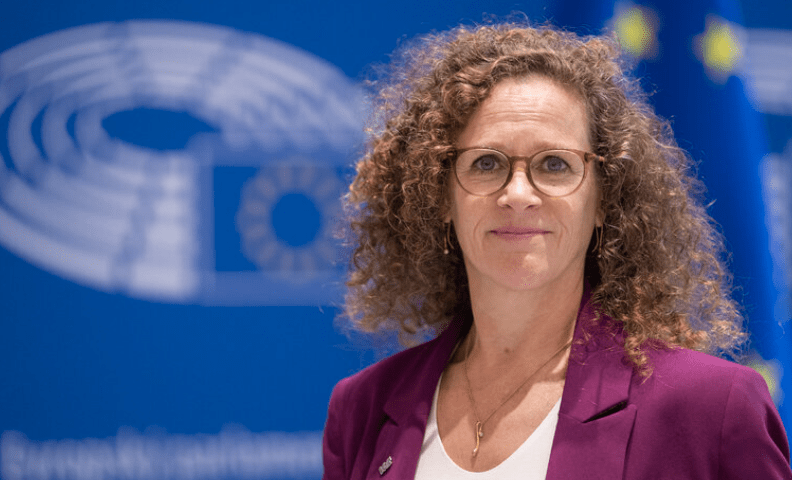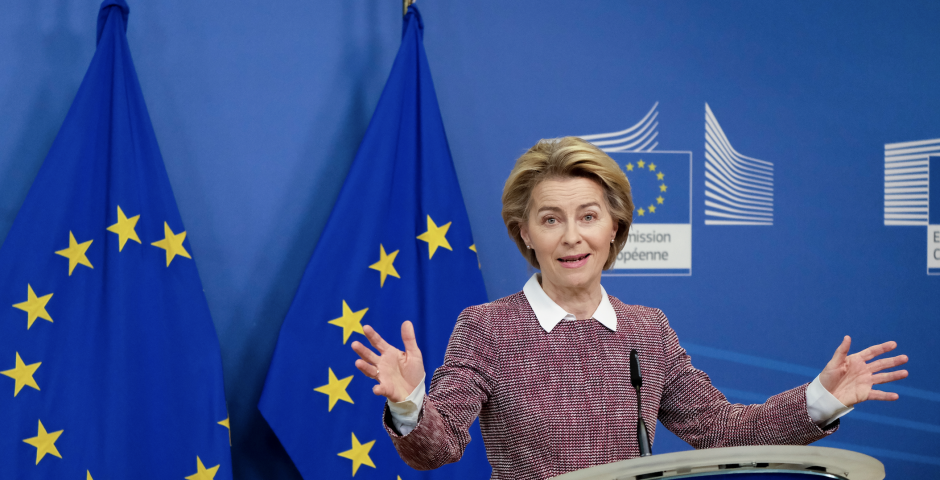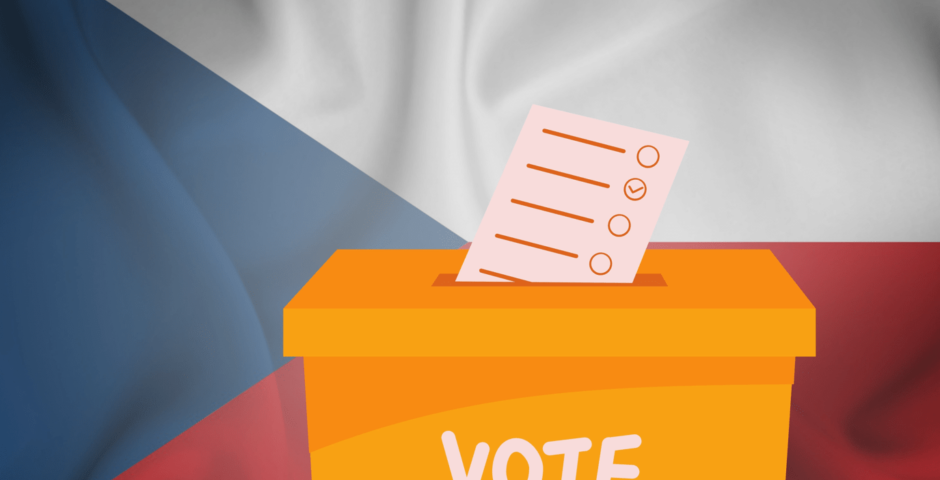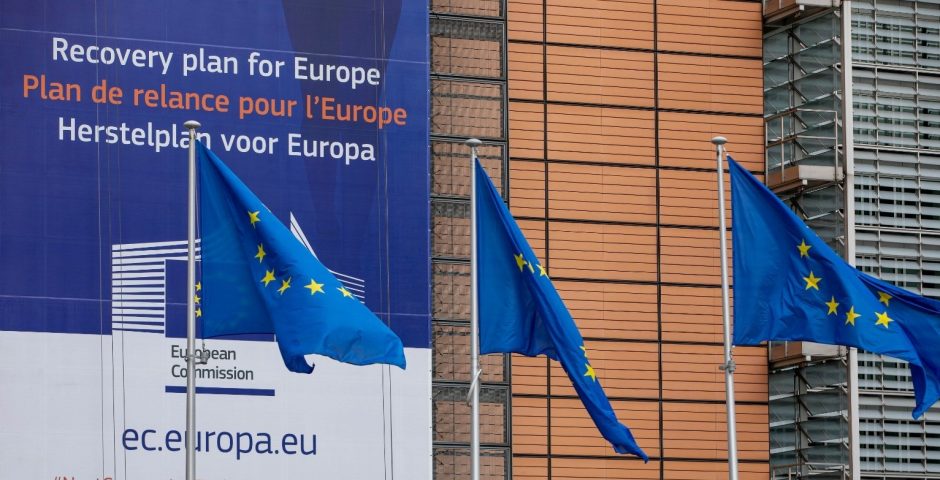Merkel’s Legacy: A divided European Union?
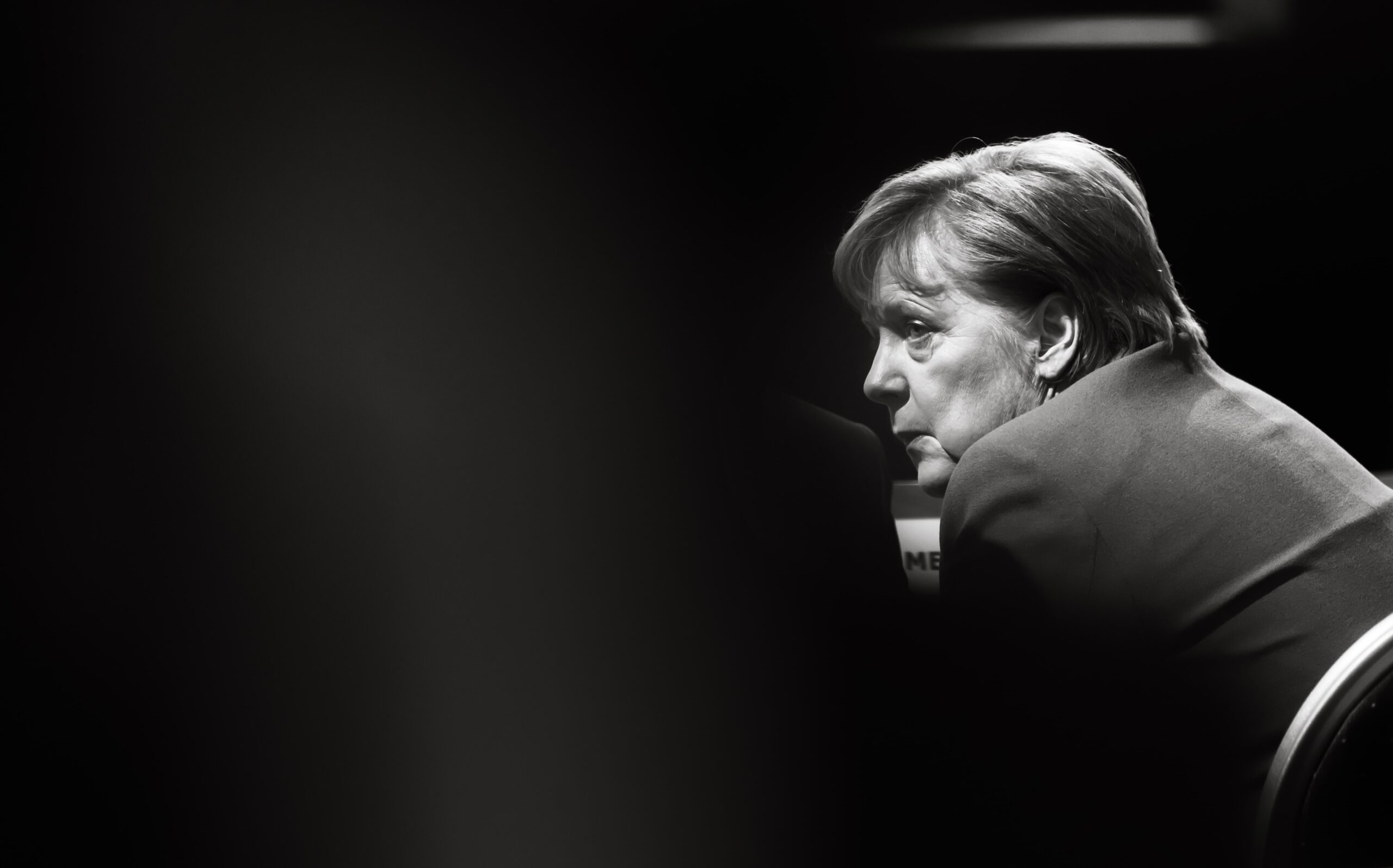
The crises that shaped Angela Merkel’s Chancellorship – From Germany to the European level
When Angela Merkel was elected as Germany’s chancellor on 22 November 2005, she set a record as the first woman, the first East German, and the youngest person, at age 51, to ever take said office. She is also the first (and probably last) head of state to ever roll their eyes publically at Vladimir Putin and get away with it, as has been recorded during a G20 conference in 2017. Now, after 16 years of chancellorship, Angela Merkel is once and for all stepping off the political stage. It seems almost surreal.
An entire generation of Germans have grown up with ‘Mutti’ Merkel as their head of state. During her reign, she has seen three American presidents, five British prime ministers and four French presidents come and go. Sympathetically dubbed ‘Krisenkanzlerin’ – crisis chancellor – she is known to have navigated Germany securely through the 2008 financial crisis, the refugee crisis, and the starkest rise of right-wing populism since WWII. Merkel represents the embodiment of political stability and power.
But not only Germans will miss Mutti Merkel. A poll conducted in 12 EU member states by the European Council of Foreign Relations (ECFR) asked participants if they would rather vote for Merkel or French president Emmanuel Macron in fictional elections for a European Union president (an office that does not exist). In total, 42% of participants reported that they would vote for Merkel, while only 14% would vote for Macron. 25% filed that they would not vote at all and 20% of participants were torn between the two candidates. This demonstrates that Merkel will leave a void within the ranks of European leadership.
The Financial Crisis
The onset of the 2008 global financial crisis is generally considered Merkel’s first big challenge. It marks a successful rescue mission of the German economy, the establishment of Merkel as a dominant leader within the EU, and an intensification of the European North-South divide. Merkel infamously pushed for stark austerity measures as the only way to exit the Eurozone crisis. This worked well for Germany’s economy which emerged stronger than ever, hitting the ‘Schwarze Null’ – black zero – in 2014, with public income exceeding public spendings for the first time in 45 years.
At the European level, however, especially Southern European countries like Spain, Portugal, Italy – but also Ireland in the North – struggled to adhere to the tight fiscal measures imposed by the EU. Greece, specifically, plummeted into an unforeseen social crisis with youth unemployment rates rising above 50%, a spike in emigration with 400,000 Greeks exiting their country, and a drastic drop in GDP. To many Greeks, Merkel represents not stability and prosperity but poverty, recession, and despair. Almost every state visit of the German chancellor is greeted with widespread protests and public outrage (most recently in 2019).
The Refugee Crisis
The 2015 refugee crisis marks another fundamental milestone in Merkel’s chancellorship. The decision to open up Germany’s borders was uncharacteristically liberal and primarily driven by the premise of a looming humanitarian crisis on the closed Hungarian-Austrian border. By the end of 2015, Germany admitted over 800,000 asylum seekers, four times the figure registered in 2014. In her now-famous speech ‘Wir schaffen das,’ commonly translated as “We can manage it,” Merkel highlights Germany’s strength and resilience in the previous crisis.
Yet, domestically, her decision destabilized the political spectrum. Merkel acted decisively against the consensus of her own party, the conservative Christian Democratic Union (CDU), and sent her popularity ratings plummeting. At the same time, the right-wing Alternative Party for Germany (AfD) positioned itself as the only viable option of formerly conservative voters and rode the waves of xenophobia to become the third-largest party in the 2017 elections. Attacks on asylum seekers and asylum homes tripled in 2015 compared to the year before.
Again, Merkel set the tone to tackle the crisis on the European level. She advocated for refugee quotas, appealing to European solidarity in order to disperse refugees stranded in Southern European countries – specifically Italy, Spain and Greece – more equally between member states. The proposal was met with stark resistance from Central European Countries. Both Hungary and Poland refused to take in any refugees at all, while the Czech Republic took in a mere twelve migrants before closing itself off completely.
While populism had been on a steady rise since the 1990s, the refugee crisis incentivized a sharp rise in populist parties across Europe. Victor Orbán’s anti-democratic party Fidesz secured a supermajority vote in 2014, Marine Le Pen led the right-wing National Front party to renewed popularity scoring 33% in the French elections of 2017, and populist Geert Wilders received widespread support throughout the Netherlands for his outspoken islamophobia (despite being trialed for hate speech). Merkel’s critics argue that her reactive government style and lack of a European vision prevented her from averting the overall democratic backsliding across Europe and that she could have done more.
The Aftermath
Of course, aside from the refugee and the financial crisis, Merkel has faced many more challenges throughout her time in office – many of which have played an integral part in determining the direction of EU politics. For instance, Merkel pushed for the ratification of the Lisbon Treaty in 2009 which led to long-awaited EU inter-institutional reform. She also vigorously defended the EU’s stance on Brexit, confronting the UK with a no-deal agreement if necessary. Most recently, during the Covid-19 pandemic, Merkel has smoothened the path towards coordination on travel restrictions and vaccine distribution between EU member states.
Certainly, Merkel has mixed records. Her role in the financial crisis was certainly driven primarily by national interests. It has kept Greece in the euro and stabilized the Eurozone but the price paid by Greek citizens was disproportionately high. The decision to open up European borders to refugees is considered by many a courageous, humanist, and deeply democratic approach towards foreign policy. Yet, her failure to consider the value-split between Eastern and Western Europe has hit Southern European countries like Italy, Spain and, again, Greece much harder than it did Germany. While some admire her ability to remain on eye-level with authoritarian leaders the likes of Putin, Orbàn, or Erdoğan, others liken her pragmatism to political compliance.
Yet, almost a decade after the global recession hit the Eurozone, public opinion has shifted largely in favour of Merkel’s approach towards crisis resolution. In the ECFR poll, survey respondents trusted Germany most with the defence of economic interests (36%), followed closely by the protection of democracy and human rights. With the German elections coming to a close on 26 September 2021 and polls bouncing back and forth between socialists (SPD), conservatives (CDU), and greens (Die Gruenen) without a clear trend in sight, it remains to be seen who will take the leadership of Berlin and if they are fit to step out of the shadow of Merkel’s lingering legacy.
Cara is currently completing her BA in European Studies at the University of Amsterdam. She has a passion for ethical journalism, focussing on EU foreign relations, gender equity and human rights.
Image: Shutterstock

